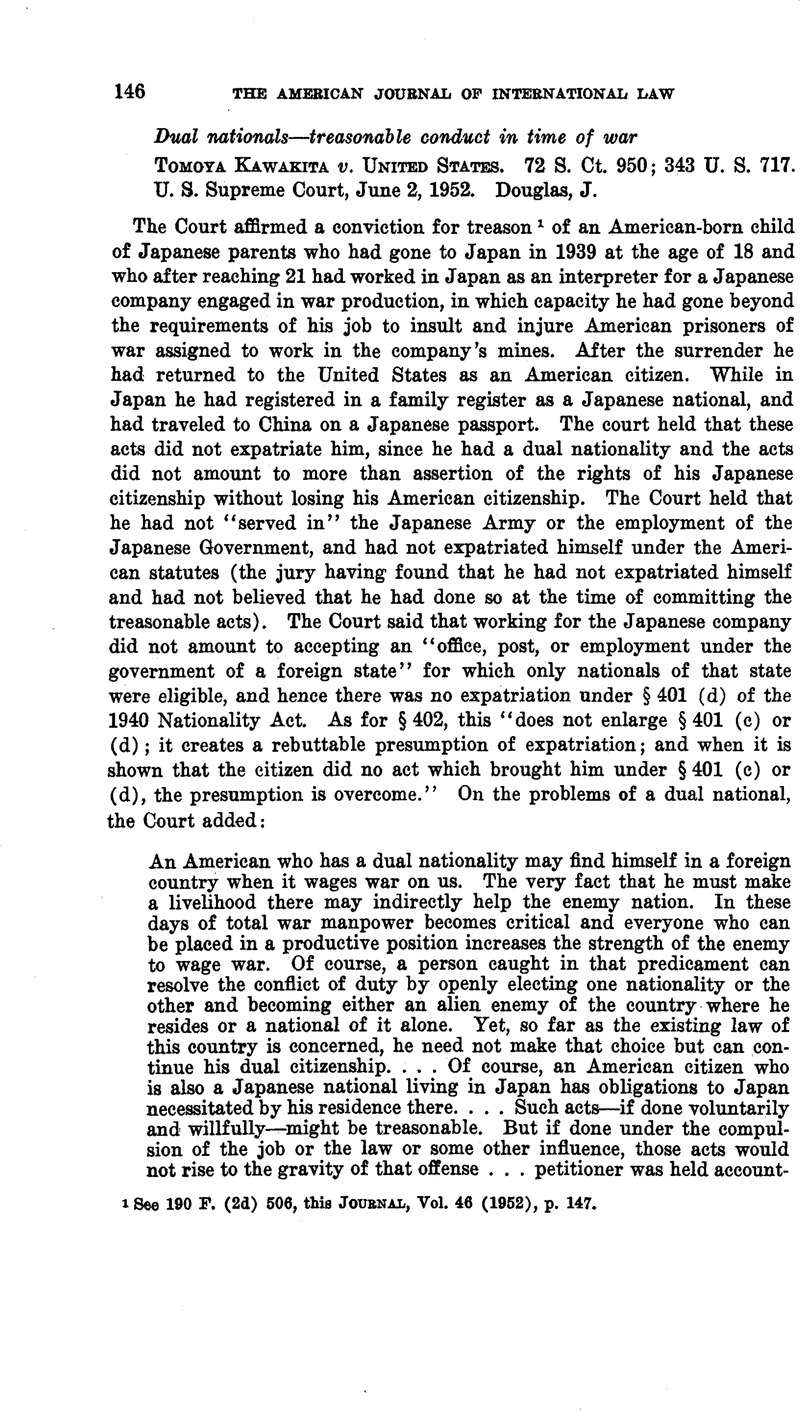No CrossRef data available.
Published online by Cambridge University Press: 20 April 2017

1 See 190 F. (2d) 506, this Joubnal, Vol. 46 (1952), p. 147.
2 dark and Frankfurter, JJ., took no part in the decision, and Vinson, C. J., and Black and Burton, JJ., dissented on the ground that petitioner had expatriated himself through his demonstration of allegiance to Japan and that his statement that he was still a citizen when he sought a passport could not restore the citizenship he had lost.
Accord with the principal case, see D’Aquino v. U. S., 192 F. (2d) 338 (9th Ct., Oct. 10, 1951), upholding the treason conviction of “Tokyo Rose,” who, though American-born, had broadcast for Japan during the war.